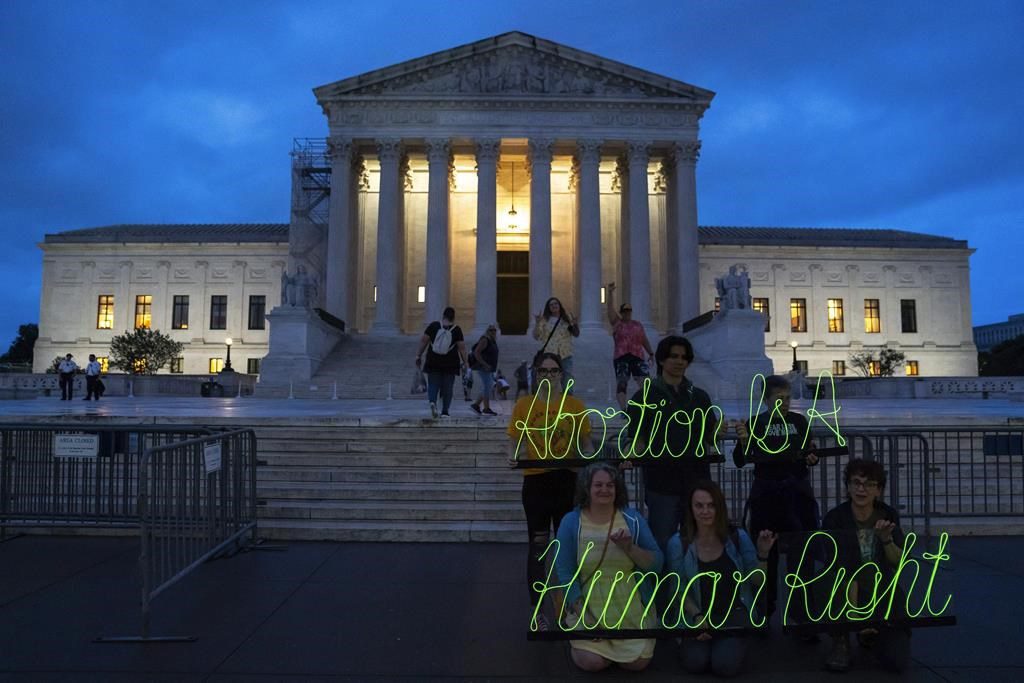Activists and politicians are marking the one-year anniversary of the U.S. Supreme Court ruling that overturned a nationwide right to abortion by both bashing and celebrating it.
Rallies on both sides were scheduled for Saturday in Washington and across the country.
In a statement, President Joe Biden pledged to protect access and decried the court’s ruling in Dobbs v. Jackson Women’s Health Organization. The court’s conservative majority on June 24, 2022, overturned the Roe v. Wade decision, which had been in place for nearly a half-century.
“States have imposed extreme and dangerous abortion bans that put the health and lives of women in jeopardy, force women to travel hundreds of miles for care, and threaten to criminalize doctors for providing the health care that their patients need and that they are trained to provide,” Biden said.
Republican National Committee Chairwoman Ronna McDaniel praised the ruling, which was made possible by former President Donald Trump’s adding three conservative justices to the Supreme Court during his term in office.
“The decision has saved countless lives and set America on a positive course after decades of shameful abortion on-demand practices that put us in a category with China and North Korea,” McDaniel said in a statement.
The decision made abortion an unavoidable campaign issue and deepened policy differences between the states. Most Republican-controlled state have imposed bans , including 14 where laws in effect now block most abortions in every stage of pregnancy, with varying exceptions for the life and health of the women and for pregnancies resulting from rape or incest. Most Democrat-led states have taken steps to protect abortion access, particularly by seeking to protect doctors and others from prosecution for violating other states’ abortion bans.
While there’s far from a universal consensus among voters, public opinion polls have consistently found that the majority oppose the most restrictive bans but also oppose unchecked abortion access at all stages of pregnancy.
Biden has pushed for a national law to reinstate abortion access. Republicans have called for a national ban. This week, former Vice President Mike Pence, who is seeking the 2024 GOP presidential nomination, is calling for his party’s presdential candidates to join him in backing a ban after 15 weeks of pregnancy.
But with Democrats controlling the presidency and U.S. Senate and Republicans holding the House, no federal change is imminent.
Because of that, the abortion fight has played out mostly in state legislatures and courts.
The policies have vast practical implications.
In states with the deepest bans, the number of abortions has plummeted to nearly zero. There have been more abortions in states where access has been maintained — especially those closest to those with bans, as women travel for care they used to be able to get closer to home.
There’s also been a rise in use of networks that distribute abortion pills.
But while abortions have continued, advocates say there’s an equity problem: Black women and lower-income women especially, they say, are those who were expected to lose access.
Geoff Mulvihill, The Associated Press








